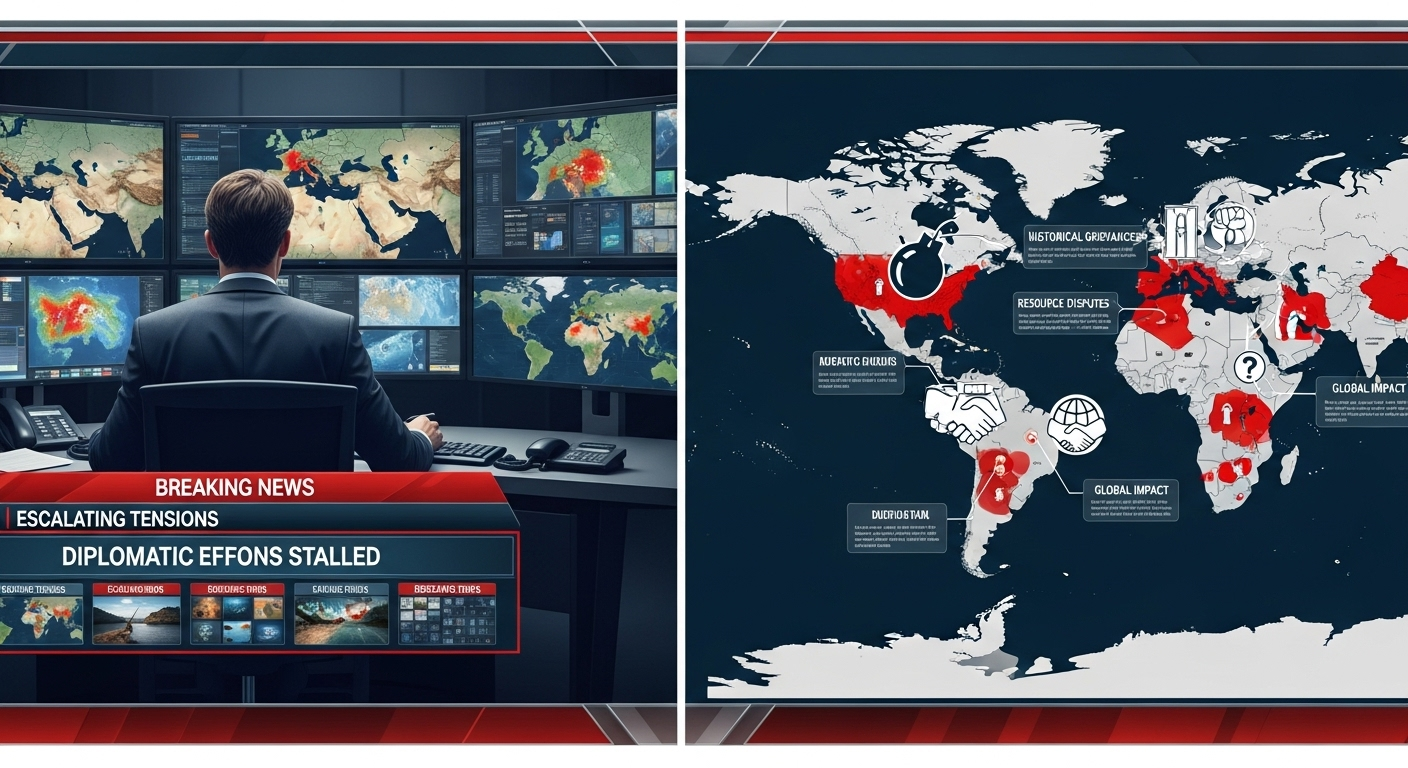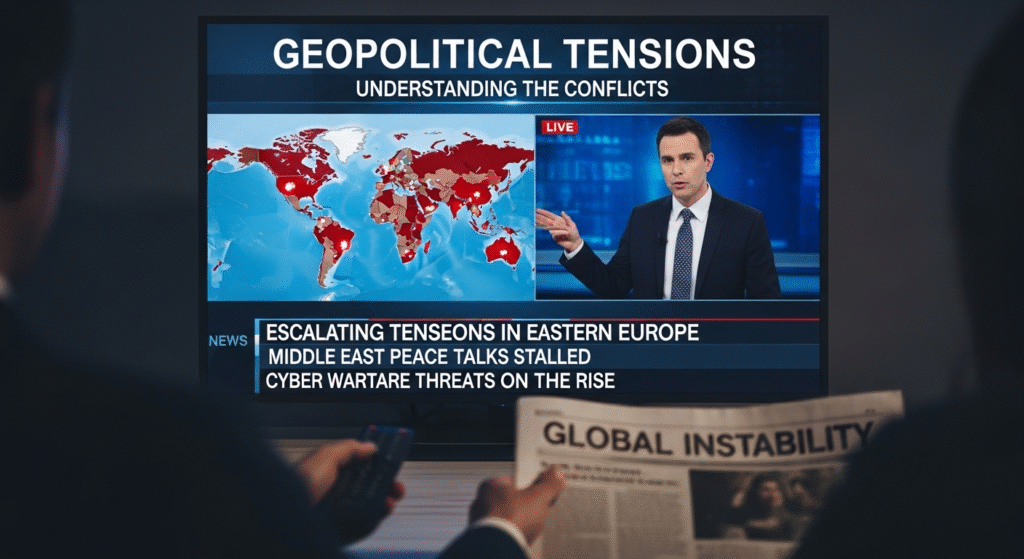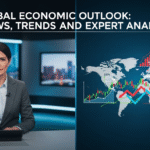Ever feel like you’re trying to decipher a really complex board game with rules that keep changing? That’s kind of how I feel about geopolitical tensions these days. One minute, things seem calm, the next – BOOM! – a new crisis erupts. It’s exhausting, right? But also, if you’re anything like me, endlessly fascinating. I mean, what really drives these conflicts, and how can we even begin to understand them?
I’ve got to admit, this stuff has always pulled me in. Maybe it’s the high stakes, the intricate power plays, or the fact that real people are affected by these decisions. Whatever it is, let’s try to unpack some of this together, shall we?
The Shifting Sands of Global Power

The world isn’t static. That’s the first thing to remember. Power shifts, alliances crumble, and new players emerge all the time. Think of it like a giant game of musical chairs, but with countries instead of people, and resources instead of chairs. Everyone’s scrambling for a spot when the music stops.
But it’s more than just that, isn’t it? It’s about history, ideology, resources, and plain old human ambition. For example, look at the South China Sea. Several countries have overlapping claims, and China’s been increasingly assertive in the region. It’s a complex issue with deep historical roots and significant economic implications. You can read more about that sort of geopolitical shift in news coverage and articles from organizations like the Council on Foreign Relations. See, these clashes often stem from a cocktail of factors, not just one simple cause.
And then there’s the role of technology. How technology is changing the geopolitical climate can be seen at Navigating the AI Revolution: Staying Informed in a World of Algorithms
Decoding the Headlines: Beyond the Sound Bites
Here’s the thing: the 24/7 news cycle doesn’t always help us understand geopolitical tensions. In fact, it can often make things more confusing. Sound bites, sensational headlines, and partisan spin – it’s all designed to grab our attention, not necessarily to inform us. So how do we cut through the noise?
Well, for starters, be skeptical. Question everything. Don’t just accept what you read or hear at face value. Seek out multiple sources of information, and try to get a balanced perspective. Look for in-depth analysis and historical context. And be wary of narratives that are overly simplistic or that demonize one side or the other. Because, let’s face it, things are rarely black and white in international relations.
The Economic Undercurrents
You might be wondering, what does economics have to do with all of this? A lot, actually. Economic competition, trade disputes, and resource scarcity can all contribute to geopolitical tensions. Think about it: countries are constantly vying for economic advantage, and that can create friction, especially when resources are limited.
And it’s not just about oil and gas anymore. It’s about critical minerals, rare earth elements, and access to strategic technologies. These are the new battlegrounds, and the stakes are incredibly high. We are already seeing a lot of action in cloud computing, to see how this is changing, check out Microsoft Planetary Computer Pro: Unlocking Geo-Space Knowledge
The Human Cost: Remembering the Real Impact
It’s easy to get lost in the abstract theories and political machinations, but we can’t forget the human cost of geopolitical tensions. Wars, conflicts, and instability displace millions of people, disrupt communities, and cause immense suffering. These aren’t just statistics; they’re real people with lives, dreams, and families.
And that’s why it’s so important to understand these conflicts. Not just for intellectual curiosity, but for the sake of empathy and human solidarity. The decisions made by leaders and policymakers have a direct impact on the lives of ordinary people, and we have a responsibility to hold them accountable.
FAQ: Understanding Geopolitical Tensions
Why are geopolitical tensions increasing?
That’s a million-dollar question, isn’t it? There’s no single answer, but a few key factors seem to be at play. The rise of new powers challenging the established order, increasing competition for resources, the spread of misinformation and disinformation, and the erosion of international norms and institutions – these all contribute to a more volatile and unpredictable world.
How do I know if news about Geopolitical Tensions: News and Understanding the Conflicts is reliable?
Ah, the age-old question of media literacy! Start by checking the source’s reputation. Is it known for accuracy and impartiality? Does it have a clear editorial policy? Look for evidence-based reporting, and be wary of sensational headlines or overly emotional language. Cross-reference information with other reputable sources. And remember, no source is perfect, so always maintain a healthy dose of skepticism.
What role does technology play in escalating geopolitical tensions?
Technology’s a double-edged sword. On the one hand, it can connect people and promote understanding. On the other hand, it can be used to spread propaganda, interfere in elections, and conduct cyberattacks. Think about it: social media platforms can amplify extremist views, and artificial intelligence can be used to create sophisticated disinformation campaigns. It’s a brave new world, and we need to be vigilant.
Can individuals actually make a difference in reducing tensions?
Absolutely! It might seem like a drop in the bucket, but every little bit helps. Educate yourself about the issues, engage in respectful dialogue with people who hold different views, support organizations working for peace and justice, and hold your leaders accountable. And don’t underestimate the power of empathy and human connection. Small acts of kindness can go a long way in bridging divides and building trust.
So, where does all of this leave us? Probably with more questions than answers, if I’m being honest. But that’s okay. Understanding geopolitical tensions is a journey, not a destination. It requires constant learning, critical thinking, and a willingness to challenge our own assumptions. And who knows, maybe by engaging with these issues, we can play a small part in creating a more peaceful and just world. One can hope, right?



